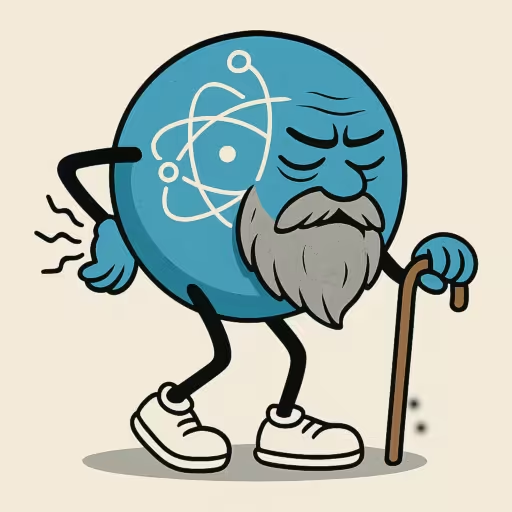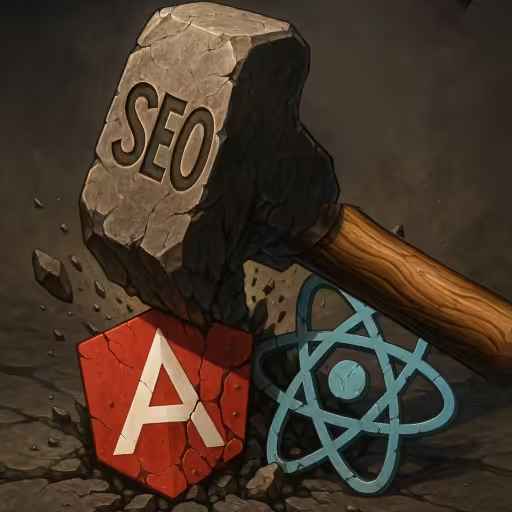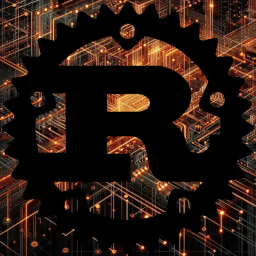Is Electron Really That Bad? Debunking the Myths About Electron Desktop Apps
This post is a breakdown of Theo's excellent video "Is Electron Really That Bad?" on YouTube. If you care about the future of desktop apps, go watch his video and support his work.
What Is Electron App?
If you've ever wondered "what is Electron app?"—here's the answer: Electron is a framework that lets developers build desktop apps using web technologies like HTML, CSS, and JavaScript. Under the hood, an Electron desktop app is basically a stripped-down version of Google Chrome (technically, Chromium) bundled together with Node.js. This "mini browser" runs your web code as a native-looking application on Windows, macOS, and Linux.
The pitch? Code once, ship everywhere. The trade-off? Electron apps are notorious for using more RAM than traditional "native" apps, since each one ships with its own copy of Chromium. Some users also report quirky behavior or performance issues on macOS, especially with heavy apps or when Apple changes system APIs. Despite these criticisms, Electron remains one of the most popular ways to create cross-platform desktop software quickly.
Is Atom Really Discontinued?
Yes, it's true—Atom is officially discontinued as of December 2022, and it was the original flagship Electron app (actually the reason Electron exists). Atom was created by GitHub, written in Electron from the start, and was genuinely groundbreaking for making hackable, web-powered editors mainstream. Microsoft (which now owns GitHub) sunset Atom to focus on VS Code, which is also built on Electron.
Atom was many developers' first real IDE, especially for Python and JavaScript. It was free, open source, and famously easy to tweak and extend with packages. For a while, Atom represented what was possible when web tech met the desktop.
But in December 2022, GitHub (now owned by Microsoft) officially discontinued Atom, citing overlapping development effort with Visual Studio Code—which is also built on Electron but had surged ahead in adoption, speed, and features.
Frankly, a lot of devs have nostalgia for Atom—especially those who used it for their first real coding projects. It was slow at times, but it was approachable and infinitely customizable.
Introduction: Why All the Hate for Electron Apps?
As Theo says in the video, Electron apps are everywhere, yet they have become an easy punching bag for developers, tech influencers, and power users. If you've read any forum threads or watched opinion videos, you've probably heard the same refrains: Electron is bloated, slow, or "not native." But do these criticisms hold water, or is Electron simply misunderstood? Let's get real about what Electron is, why it has the reputation it does, and which criticisms are actually valid.
The Origins of Electron: From Atom to Cross-Platform Giant
Electron started as the stripped-down Chrome engine behind GitHub's Atom editor. The goal was simple: let developers create desktop applications using web technologies—HTML, CSS, and JavaScript. This approach meant you could build an "electron app" or "electron desktop app" that works on Windows, macOS, and Linux with a single codebase. Microsoft's Visual Studio Code team saw the potential and ran with it, propelling Electron to center stage in the world of cross-platform development.
Electron's Ubiquity: Why Is Everyone Using It?
Slack, Discord, Microsoft Teams, WhatsApp Desktop, VS Code, Figma, Notion, Obsidian, and Spotify—all of these are prominent "electron app examples". The reason? Electron makes building, testing, and shipping desktop software much faster. Instead of hiring separate teams for each platform, developers can focus on creating an electron app once and running it anywhere. This speed and flexibility are why "creating electron app" or "building an electron app" is now common practice across tech.
The Usual Complaints: Non-Native Feel, Performance, and Fragility
The big gripes with Electron apps are pretty consistent:
- Non-native look and feel: Electron apps can feel different from platform-specific apps. UI controls may not match OS conventions, and behaviors can be subtly (or not so subtly) off.
- JavaScript/Chromium overhead: Each Electron app bundles a whole Chromium instance. This can mean higher memory and CPU usage, especially for basic tools.
- Dynamic web pages: Some teams ship Electron apps as essentially live web apps instead of self-contained binaries. This can make apps brittle, slower to load, and sometimes insecure.
But let's be clear: these are potential issues, not guaranteed outcomes. Most "electron desktop app" complaints stem from bad examples, not the platform itself.
The "Native" Decay: Why Native Apps Aren't What They Used to Be
Ironically, many modern "native" macOS and Windows apps also feel cheap or clunky. UI polish, responsiveness, and platform integration have stagnated, and even Apple's own software often cuts corners. "Native" doesn't mean what it used to. If you think switching to native will guarantee a better experience, you're kidding yourself—there are plenty of terrible native apps out there.
Developer Quality Is the Real Problem
Why do some Electron apps suck? Simple: bad development. Electron is easy to pick up, so inexperienced teams often use it and then ship subpar products. But this isn't Electron's fault—it's a people problem. The same team would build a lousy native app if that's what they used. Well-built Electron apps can be fast, polished, and indistinguishable from native—VS Code is the canonical "electron app example" proving the point.
Benchmark Insights: Electron vs. Native Performance
Blanket statements about Electron's performance don't hold up. Chromium's rendering engine is heavily optimized. In scenarios like real-time, text-heavy UIs, Electron can actually outperform native frameworks like SwiftUI. There's a cost to shipping a browser with every app, but the "all Electron apps are slow" narrative is lazy at best.
The Electron Ecosystem: Cross-Platform Wins and the Linux Factor
The biggest win for Electron is democratizing desktop app development. Web-based tooling means faster iteration, more open-source projects, and, crucially, a path to viable Linux desktop software—something native-only approaches never prioritized. "Electron web app" and "electron for desktop apps" searches have surged precisely because this ecosystem empowers more devs and users, not fewer.
Alternatives to Electron: Tauri, React Native for Desktop, and More
Electron isn't the only game in town:
- Tauri offers a lightweight Rust-powered shell—much smaller footprint, but less mature.
- React Native for Windows/macOS uses actual native controls (Microsoft-backed), but the learning curve and API coverage are hurdles.
- Flutter is another option, but faces its own integration and polish issues.
No silver bullets here. Each approach has tradeoffs. For now, Electron is still the de facto way to rapidly build cross-platform desktop software, especially for indie teams and startups.
On the "Arch Linux" Meme and Electron Hate
The video singles out a certain type of Linux user—specifically, the self-styled purists who haunt Arch Linux forums and love to sneer at Electron and Mac users alike. What's with the beef? It's less about technology and more about culture. These users equate "native" and "open" with ideological purity. They'll dismiss Electron because it's backed by Google, or because it doesn't align with their strict standards. In reality, many Linux users are excited about Electron's potential—especially for getting new apps on the platform. The Arch gatekeepers just make more noise online. Ignore them.
The Real Electron Memory Problem: 150MB Beats 0MB
An insightful YouTube comment on Theo's Electron video nails it (credit to @irjamon):
Electron app memory usage: 150 MB
Native app memory usage: 0 MB (because you never ship it)
🔥🔥🔥Here's the truth—"native" purists love to argue about how Electron desktop apps are memory hogs, but the killer app isn't the one that never ships. If you're building an electron app, shipping something users can actually run—regardless of stack—beats chasing "perfect" native code that never leaves your local repo. No one benefits from software that doesn't exist.
Conclusion: Electron Isn't the Enemy
Electron is a powerful, pragmatic tool for building desktop software. The real problem isn't Electron, but how it's used. Complaints about performance, memory usage, and "non-nativeness" usually stem from rushed development or bad product decisions, not inherent technical flaws. If you care about "creating an electron app," focus on quality, testing, and user experience—just as you would with any stack. The tech landscape moves fast, and Electron is part of why so many desktop apps are even possible today. Ditch the knee-jerk hate and judge each app on its merits.
Learn more from Theo at t3.gg or his YouTube channel.













